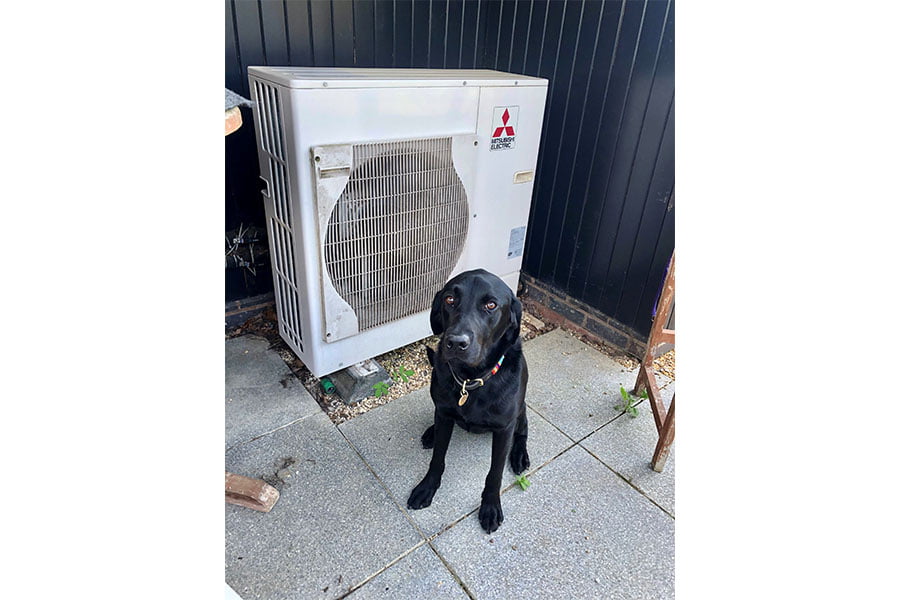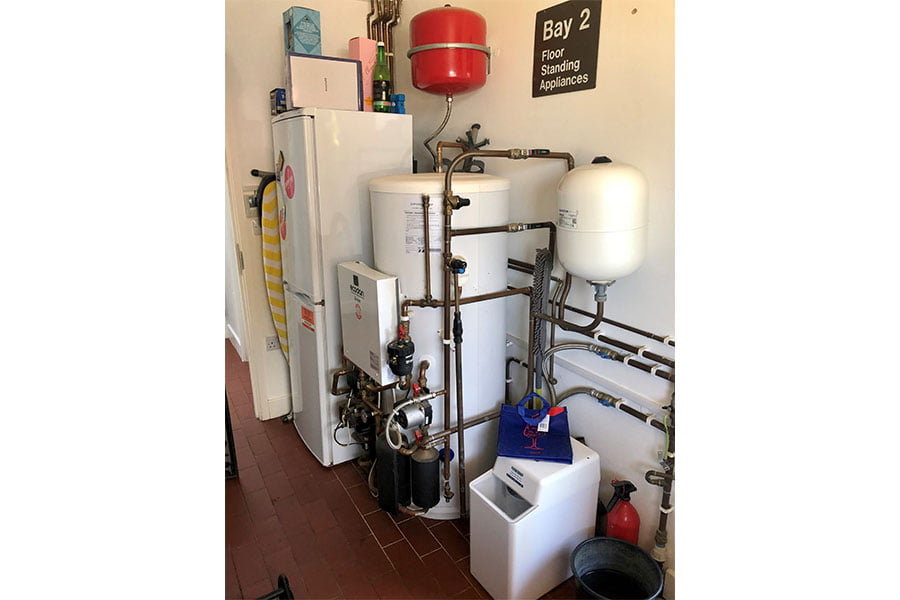I live in a very rural location; despite being just 30 minutes from London, there is no mains gas line. When I bought the property, it had electricity and was fuelled by oil. Oil was very expensive and unsustainable, and I’ve always been interested in sustainability and reducing my impact on the environment.
We installed the heat pump as part of a big renovation of our 1953 property that hadn’t been touched since it was built. I looked at what the government was offering in terms of renewable heat options, as well as the energy review carried out on your home when you buy or sell a property. As there was no gas connection, I was eligible for the UK Government’s Renewable Heat Incentive (RHI) scheme, which offers payments for installing a renewable heating system over a period of seven years.
I opted for an air source heat pump with underfloor heating throughout the entire house – upstairs and downstairs – as well as fully insulating the property. I worked with an architect who was similarly interested in sustainability. Interestingly, the decision to install an air source heat pump helped with the planning and building approvals. Given that we decided to do a complete renovation, it became a cost-effective way of bringing sustainable energy into our home. Now it heats our home and hot water.

